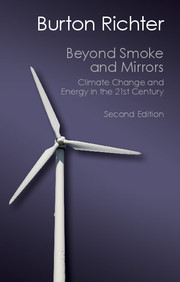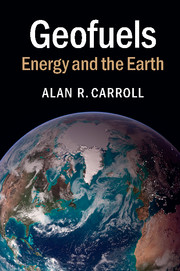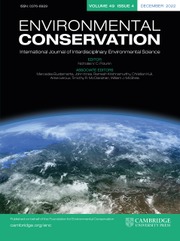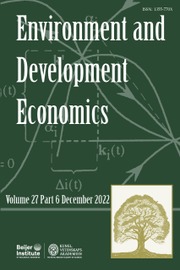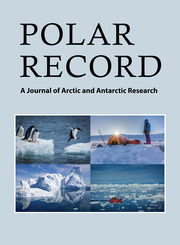Beyond Smoke and Mirrors
Global climate change is one of the most important issues humanity faces today. This book assesses the sensible, senseless and biased proposals for averting the potentially disastrous consequences of global warming, allowing the reader to draw their own conclusions on switching to more sustainable energy provision. Burton Richter is a Nobel Prize-winning scientist who has served on many US and international review committees on climate change and energy issues. He provides a concise overview of our knowledge and uncertainties within climate change science , discusses current energy demand and supply patterns, and the energy options available to cut emissions of greenhouse gases. Written in non-technical language, this book presents a balanced view of options for moving from our heavy reliance on fossil fuels into a much more sustainable energy system, and is accessible to a wide range of readers without scientific backgrounds - students, policymakers, and the concerned citizen.
- Dispels confusion about all the potential solutions for averting climate change impacts, presenting both the limitations and the promise of our energy production options
- Assesses the good and bad proposals for moving from heavy use of fossil fuels to a more sustainable energy provision in the future
- Written in an accessible language by a Nobel Prize-winning scientist
Reviews & endorsements
"The climate naysayers will surely challenge Burton Richter: What makes a mere physics professor an expert on climate change, even if he holds a Nobel Prize for finding some exotic particle inside the atom?
The answer: The Stanford professor has been researching issues of energy and climate since 1978 as a member of Jason, an independent group of scientists who advise the government on major policy questions, and he is increasingly concerned that controversies over climate change and energy have become ominously political, and the debates are flaring beyond reason.
Richter's book is the clearest guide yet to the facts and issues of climate and energy - without smoke or mirrors.
Richter has no special interest, and his book's survey of all the evidence for climate change and all the available energy sources is a model of rational discourse in this time of inflammatory arguments." -SF Chronicle
"Global warming and a host of energy problems are in the news every day. In this new book, Nobel Laureate Burt Richter offers a smart and careful survey of the problem and a dose of sobriety on real solutions. Rare in the field, the book is both well-informed yet accessible and written in elegant prose. The core of the study is a series of short yet far-ranging chapters on all the world's major energy sources and their opportunities for improvement. Richter's masterful study is stuffed full of optimism about solving the global warming problem, but it is also realistic about the scale of the effort that will be needed. And he warns that today, governments are falling far short in devising the required policies." - David G. Victor, Professor of International Relations, University of California, San Diego
"Burt Richter has packed a remarkable amount of two very important and rare commodities in a short compass: reliable information on energy and climate change and (even rarer) good judgment. He has done all this with a light touch and engaging style which will draw the intelligent reader’s sustained interest. The reader will be able to improve greatly the level of the important debates on policy in these fields." - Kenneth J. Arrow, Joan Kenney Professor of Economics, Emeritus and Professor of Operations Research, Emeritus, Stanford University
"A brilliant display of ideas and information about energy and climate change: readable, educational, constructive. A wonderful book that sets out with clarity the issues and challenges. I enjoyed this book and I’m sure it will have a wide readership." - George P. Shultz, former Secretary of State (Reagan administration); Distinguished Fellow, Stanford University
"Finally, citizens and policymakers have a comprehensive and comprehensible guide to global warming and what might be done about it. Written by a Nobel prize-winning physicist with no interest other than making the world habitable for his great-grandchildren, this eminently readable book covers the gamut of issues from basic climate science and economics to the policies and technologies necessary to mitigate global warming." - Paul Brest, President, William and Flora Hewlett Foundation
"The facts about climate change and the responses to it are the subject of substantial confusion among the public. Burton Richter, a Nobel Laureate in physics, has written a cogent analysis of what is known – and not known – about climate change and about the components of the energy system that contribute to climate change or that are offered as a means to mitigate it. Beyond Smoke and Mirrors: A Citizen’s Guide to Climate Change and Energy brings sophisticated insights and common sense to the issues, but is fully accessible to the public. This book should be required reading for anyone who seeks to understand one of the most significant global challenges that confronts humankind." - Richard A. Meserve, President of the Carnegie Institution for Science and Former Chairman, U.S. Nuclear Regulatory Commission
"I enjoyed the book and the lively personal way Richter writes. Readers, once they start, will want to read the book right through to the end. I did. The chapters on energy were wonderful and made me hope that the book will be widely read." - James Lovelock, originator of the Gaia Theory, Green Templeton College, University of Oxford
"This new book is another important contribution to the semitechnical literature on the human components of climate change: what they are, what expected impacts they will have over the next decades, and what can be done to mitigate the effects. ... In summary, this is an admirably succinct book which effectively presents the key aspects of climate change, human energy use, and the options of changing the latter to help mitigate the effects of the former. It will be a valuable read for anyone concerned about these issues--highly recommended." - William R. Green, The Leading Edge
"'Please point me to a short overview of energy and climate, with numbers but not equations, and with a no-nonsense view of the politics.' This request has been put to me in one version or another dozens of times. At last, I am comfortable with my answer: Read Beyond Smoke and Mirrors. It is an unpretentious yet deeply insightful book by Burton Richter, a physicist at Stanford and Nobel Laureate. ... Smoke and mirrors are the tools of deception, and by contrast Richter is promising to talk straight. With his title, Richter is acknowledging that a large proportion of the energy literature available to the layman is promotional--a sales pitch for this, a sales pitch for that. He is asking us to trust him, and we do. For example, he tells us that he is “a biofuels skeptic,” and he takes ten pages to explain why, stressing impacts on food supply, net-carbon issues, and the thus far unrealized claims from the research community. Such candor is rare and refreshing." - Robert H. Socolow, American Journal of Physics
"...a wonderfully balanced overview. It opens with a fine summary of the science linking carbon to climate ... provides a concise primer on the economics of long-term climate policy, and concludes with a short, sensible, and well-argued set of opinions and policy recommendations." - Physics Today
"It is rare that a scientist with the credentials of the author, Burton Richter, 1976 Nobel Laureate in Physics, attempts to communicate to society in a way that makes such an intimidating and contentious topic as climate change and the complexity of the associated energy issues that must be tackled seem easy to understand. This is a brilliant book written in a very informal way yet packed with easily understood information. Richter’s judgment is superb in assessing the role that the various possible solutions may play in averting a global warming catastrophe. His long experience as an energy advisor to US governments shows clearly in this discussion. He manages to communicate calmly but objectively the urgency of tackling the issues under discussion. ... Richter has been extremely successful in presenting the big picture about the implications of climate change and how the rise in global mean temperature can be minimized. ... It should be on the reading list for 2011 of all concerned citizens. Physicists should read this book because it is a template for how they should proselytize about science to the general public. As Richter observes “I have learned one thing: politics – particularly international politics – is much harder than physics”. This reviewer can only add that the effort to communicate to the political system is well worth the effort." - Harvey A. Buckmaster, Canadian Association of Physicists
"...the author adequately outlined the past, current and future effects on greenhouse gas emissions without requiring the reader to have any preconceived notions of the topic. I would recommend anyone with an interest in climate change to read this book with complete understanding toward those with a background in high school level general science." CMOS Bulletin
"As a compendium of vital energy information, clear facts on climate change and insights into how political decisions about energy are made in the U.S. and the world, Richter's book is an invaluable resource. EnviroLine" EnviroLine
Product details
April 2010Adobe eBook Reader
9780511686306
0 pages
0kg
38 b/w illus. 22 tables
This ISBN is for an eBook version which is distributed on our behalf by a third party.
Table of Contents
- Preface
- List of units
- List of conversion factors
- List of abbreviations
- 1. Introduction
- Part I. Climate:
- 2. Greenhouse Earth
- 3. Climate modelling
- 4. The past as proxy for the future
- 5. Predicting the future
- Part II. Energy:
- 6. Taking up arms against this sea of troubles
- 7. How fast to move: a physicist's look at the economists
- 8. Energy, emissions and action
- 9. Fossil fuels: how much is there?
- 10. Electricity, emission and pricing carbon
- 11. Efficiency: the first priority
- 12. Nuclear energy
- 13. Renewables
- 14. Biofuels: is there anything there?
- 15. An energy summary
- Part III. Policy:
- 16. US policy: new things, bad things, good things
- 17. World policy action
- 18. Coda
- References
- Index.


